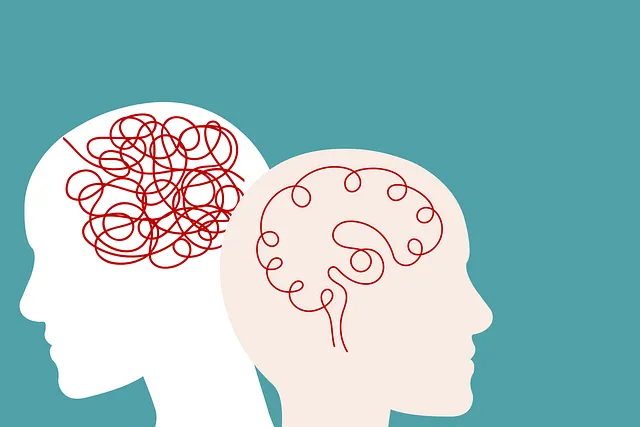Broomfield Kaiser Permanente behavioral health services reviews highlight mood regulation as a cornerstone of emotional balance, emphasizing that it's not just about happiness but resilience. Through journaling, exercise, conflict resolution, cognitive techniques, and mindfulness meditation, individuals can enhance emotional intelligence, coping mechanisms, and mental wellness. Mindfulness and meditation, integrated into the facility's services, reduce stress and burnout, especially for healthcare providers in high-pressure environments. Lifestyle interventions like balanced diets, regular exercise, and adequate sleep, backed by research, are also key to mood regulation and self-esteem improvement. Positive reviews commend Broomfield Kaiser Permanente for its comprehensive approach, combining clinical care with community outreach and advocacy to enhance local mental health services.
Mood regulation is a vital aspect of emotional well-being. This comprehensive guide explores various strategies to help individuals achieve and maintain a balanced state of mind. From understanding the fundamentals of emotional balance to practical techniques like cognitive restructuring, mindfulness exercises, lifestyle changes, and professional support from Broomfield Kaiser Permanente behavioral health services (as reviewed here), we delve into actionable steps for enhancing mood regulation.
- Understanding Mood Regulation: Unraveling Emotional Balance
- Cognitive Techniques: Shaping Thought Patterns for Well-being
- Mindfulness and Meditation: Cultivating Present-Moment Awareness
- Lifestyle Interventions: The Role of Diet, Exercise, and Sleep
- Professional Support: Broomfield Kaiser Permanente Behavioral Health Services Review
Understanding Mood Regulation: Unraveling Emotional Balance

Understanding Mood Regulation is a fundamental aspect of achieving emotional balance, a concept that has garnered significant attention from Broomfield Kaiser Permanente behavioral health services reviews. Emotional balance isn’t merely about feeling happy; it’s about being equipped to navigate life’s ups and downs with resilience. This involves recognizing and managing our emotions effectively, a skill that can be cultivated through various strategies like mental wellness journaling, exercise guidance, and conflict resolution techniques. By integrating these practices into daily routines, individuals can enhance their emotional intelligence, improve coping mechanisms, and ultimately foster better mental wellness.
Cognitive Techniques: Shaping Thought Patterns for Well-being

Cognitive techniques play a pivotal role in shaping thought patterns and enhancing emotional well-being, as highlighted by various Broomfield Kaiser Permanente behavioral health services reviews. These strategies involve recognizing and challenging negative or distorted thoughts to promote more positive and balanced perspectives. By identifying cognitive distortions like all-or-nothing thinking or catastrophizing, individuals can reframe their thoughts to foster a healthier mindset.
One powerful tool within this framework is mindfulness meditation, an Emotional Well-being Promotion Technique that encourages staying present and non-judgmentally aware of one’s thoughts and feelings. Regular practice can lead to improved regulation of emotions, enhanced focus, and increased resilience to stress. Communication Strategies, such as expressing feelings openly and effectively, also contribute to breaking negative thought cycles, fostering better interpersonal connections, and ultimately supporting overall mental health.
Mindfulness and Meditation: Cultivating Present-Moment Awareness

Mindfulness and meditation practices have gained significant attention within behavioral health services, including those offered by Broomfield Kaiser Permanente. These ancient techniques are now recognized as powerful tools for cultivating present-moment awareness, a key aspect of mental wellness coaching programs. By encouraging individuals to focus on the here and now, mindfulness can help break the cycle of rumination and reduce emotional reactivity.
In healthcare settings, burnout prevention strategies often incorporate meditation practices tailored to meet the unique needs of providers. Regular mindfulness exercises have been shown to improve stress resilience, enhance decision-making abilities, and foster a deeper sense of self-care—all essential aspects for maintaining optimal mental health among professionals in high-pressure environments. Additionally, risk assessment for mental health professionals can benefit from integrating mindfulness as a proactive measure to mitigate potential burnout and promote long-term well-being.
Lifestyle Interventions: The Role of Diet, Exercise, and Sleep

Lifestyle interventions play a pivotal role in mood regulation and are often recommended by Broomfield Kaiser Permanente behavioral health services. A balanced diet, regular exercise, and adequate sleep are cornerstones of mental well-being. Nutritious foods not only fuel our bodies but also impact neurotransmitters that influence mood. Incorporating physical activity helps reduce stress hormones and boosts the release of endorphins, known for their mood-lifting effects. Furthermore, consistent sleep patterns allow the brain to restore itself, enhancing cognitive function and emotional resilience.
These lifestyle changes are closely linked to improved self-esteem and inner strength development. By adopting healthier habits, individuals can experience a sense of control over their mental health, fostering confidence and a positive outlook on life. The interplay between diet, exercise, and sleep is a powerful tool in managing and enhancing one’s mood, as supported by various research studies and attested to by many seeking behavioral health services at Broomfield Kaiser Permanente.
Professional Support: Broomfield Kaiser Permanente Behavioral Health Services Review

Broomfield Kaiser Permanente Behavioral Health Services reviews highlight a dedicated and comprehensive approach to mental health care. The facility offers a wide array of services designed to address various aspects of mood regulation, encompassing individual therapy, group support sessions, and specialized programs tailored for specific needs. Professional therapists and counselors, equipped with advanced training in evidence-based practices, play a pivotal role in guiding patients through their emotional journeys.
Beyond clinical care, Broomfield Kaiser Permanente actively promotes community outreach program implementation and Mental Health Policy Analysis and Advocacy, fostering an environment that encourages open discussions around mental health. Their Stress Management initiatives further enhance the holistic support system, equipping individuals with valuable tools to navigate life’s challenges. These efforts collectively contribute to a vibrant landscape of mental well-being services within the community.
Mood regulation is a multifaceted process that involves understanding emotional balance and employing various strategies. From cognitive techniques for reshaping thought patterns to mindfulness practices enhancing present-moment awareness, each approach plays a unique role in maintaining mental well-being. Lifestyle interventions such as diet, exercise, and sleep are also crucial components, while professional support from services like Broomfield Kaiser Permanente Behavioral Health Services can provide tailored guidance for those seeking comprehensive care. By integrating these strategies, individuals can navigate emotional challenges more effectively and cultivate a resilient mood regulation toolkit.






